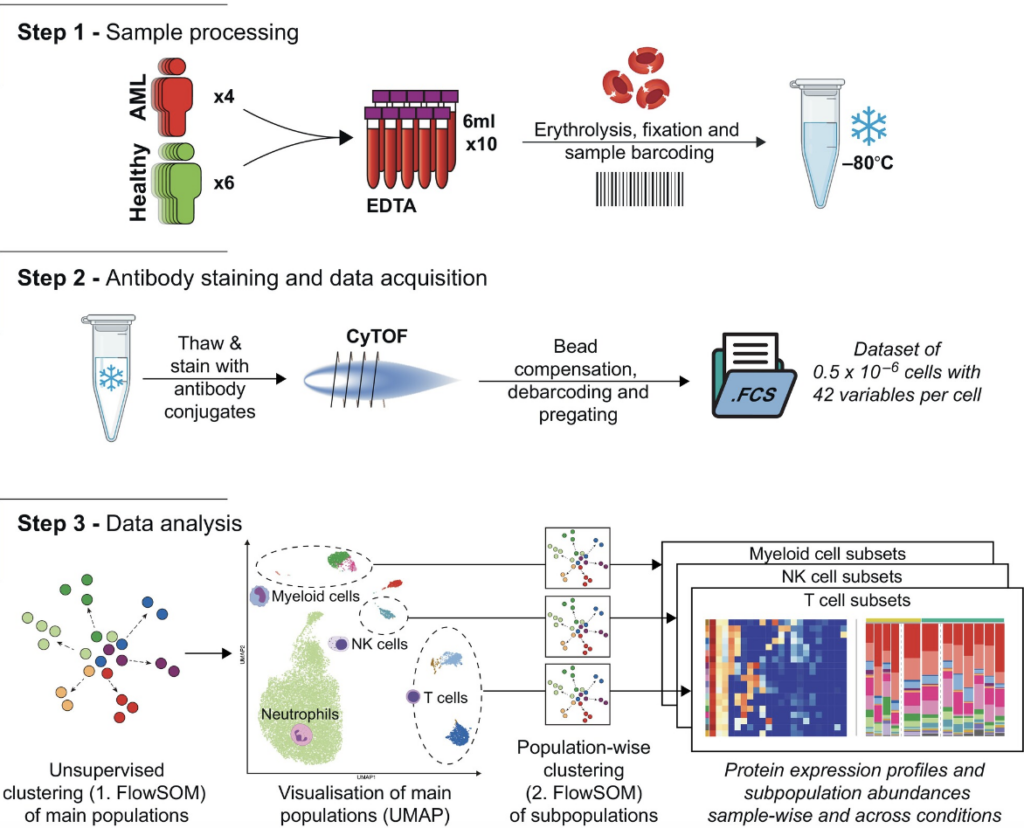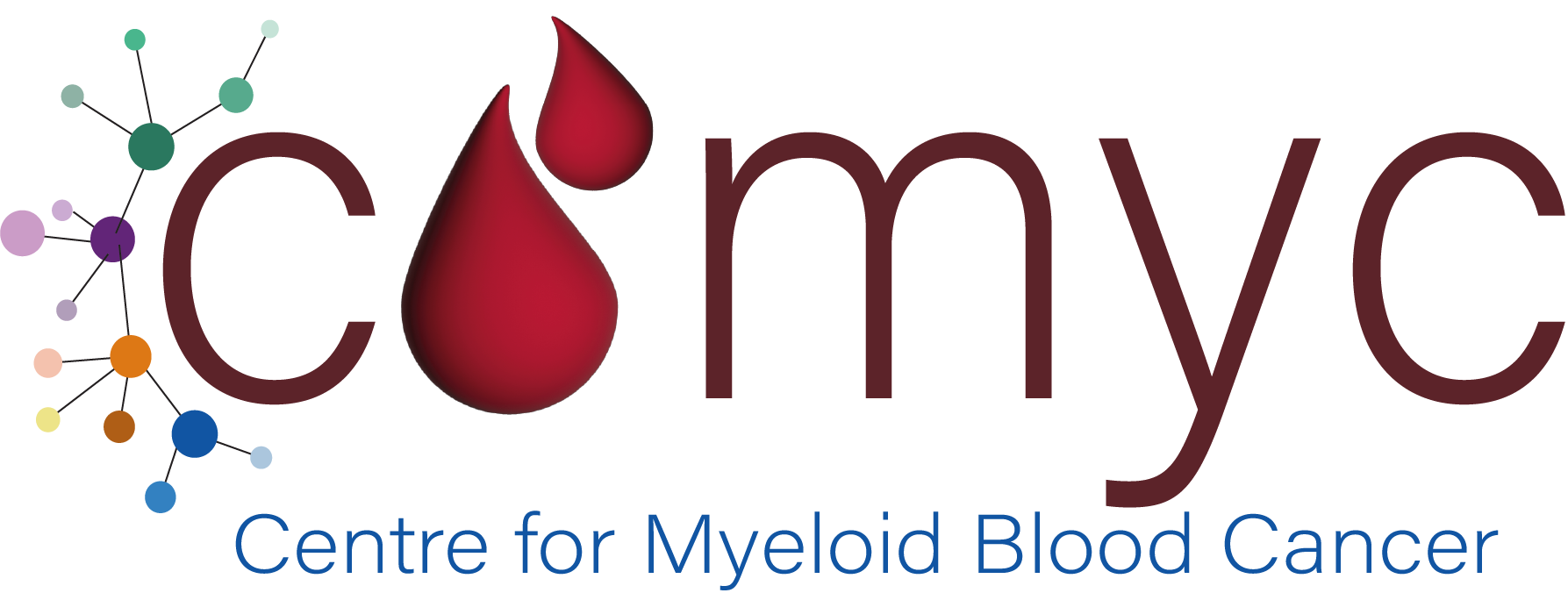Therapy for aggressive cancer often fails. Non-responders to therapy are identified only weeks or months after the start of therapy, determined by measurement of tumour load.
Our Centre focuses on myeloid leukaemia, a group of genetically and phenotypically heterogeneous blood cancers.
We aim to bring tumour diagnostics to the next level by replacing measurement of tumour load with single-cell functional profiling, identifying non-responders within hours or days, rather than weeks or months.
Anti-leukemic therapy directs the fate of tumour cells towards cell death, differentiation, transdifferentiation quiescence and senescence, but in contemporary tumour diagnostics this information about cell fate cannot be retrieved. Therefore, the analysis of tumour and host cells needs to reach a resolution of single cells, also to inform about the tumour clonality and the involved stromal and immune cell populations. Information from these functional diagnostics can be used to rapidly adapt or change therapies to convert non-responder patients to responders.
C-MYC integrates a framework of techniques that capture, with single-cell resolution, the molecular dynamics of tumour cells at diagnosis and longitudinally during therapy. State-of-the-art single-cell technologies will delineate the hierarchical cell organization of each patient’s multiple cancer cell clones.

A combination of single-cell genomics, transcriptomics, proteomics, and metabolomics can allow precise immune profiling and specific cell fate profiling during the therapy. This framework can be used to develop adaptive and novel therapies, improving both intensive chemotherapy and palliative therapy for unfit patients.
For novel diagnostic and therapy development we combine transgenic mouse models for genetic cell fate tracing together with timed and cell-specific gene expression to find optimal therapy response parameters. Functional diagnostics guiding novel therapy concepts will be tested in preclinical trials on patient derived xenografts. These adaptive preclinical trial designs will form a blueprint for future clinical trials in myeloid blood cancers, particularly the aggressive acute myeloid leukaemia (AML). In this way the Centre congregates basic and clinical researchers to develop novel diagnostics and therapy concepts for future clinical trials.
